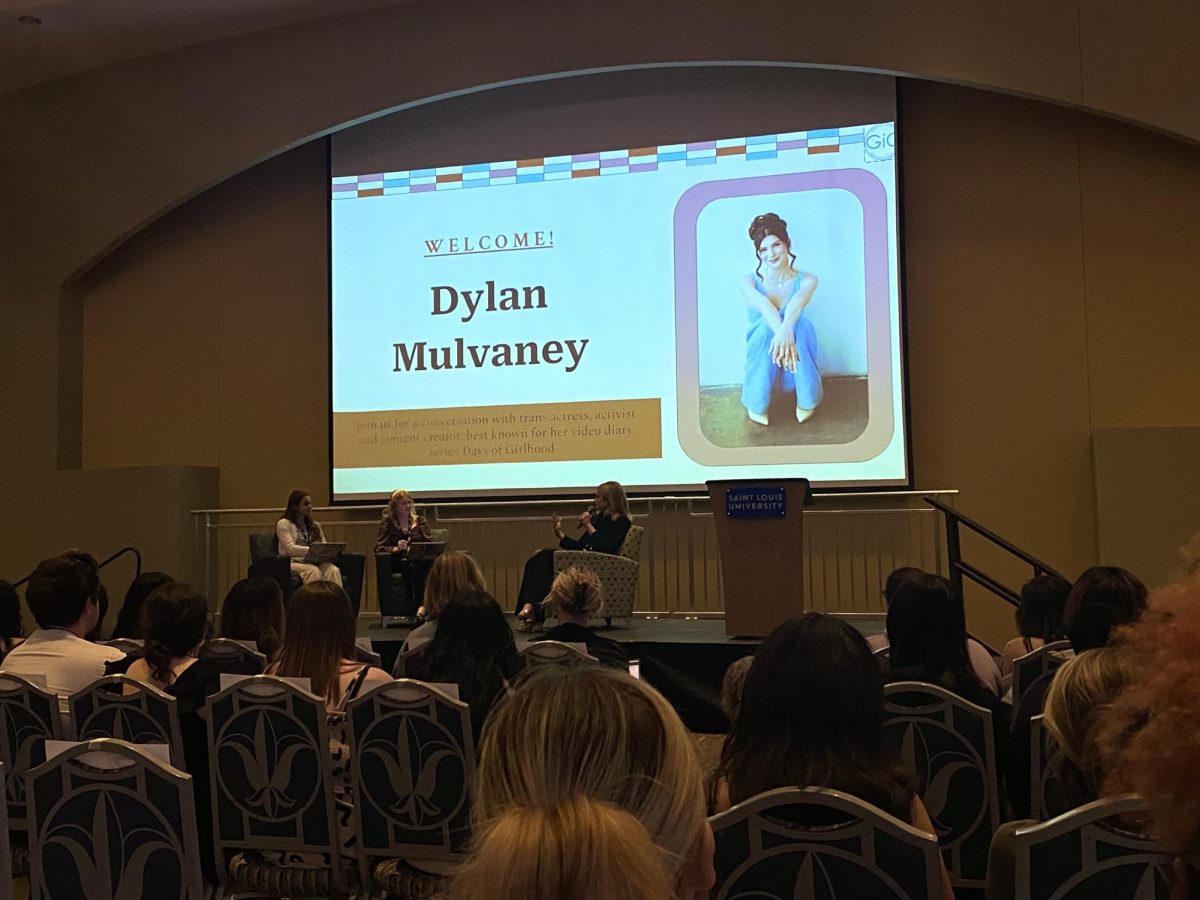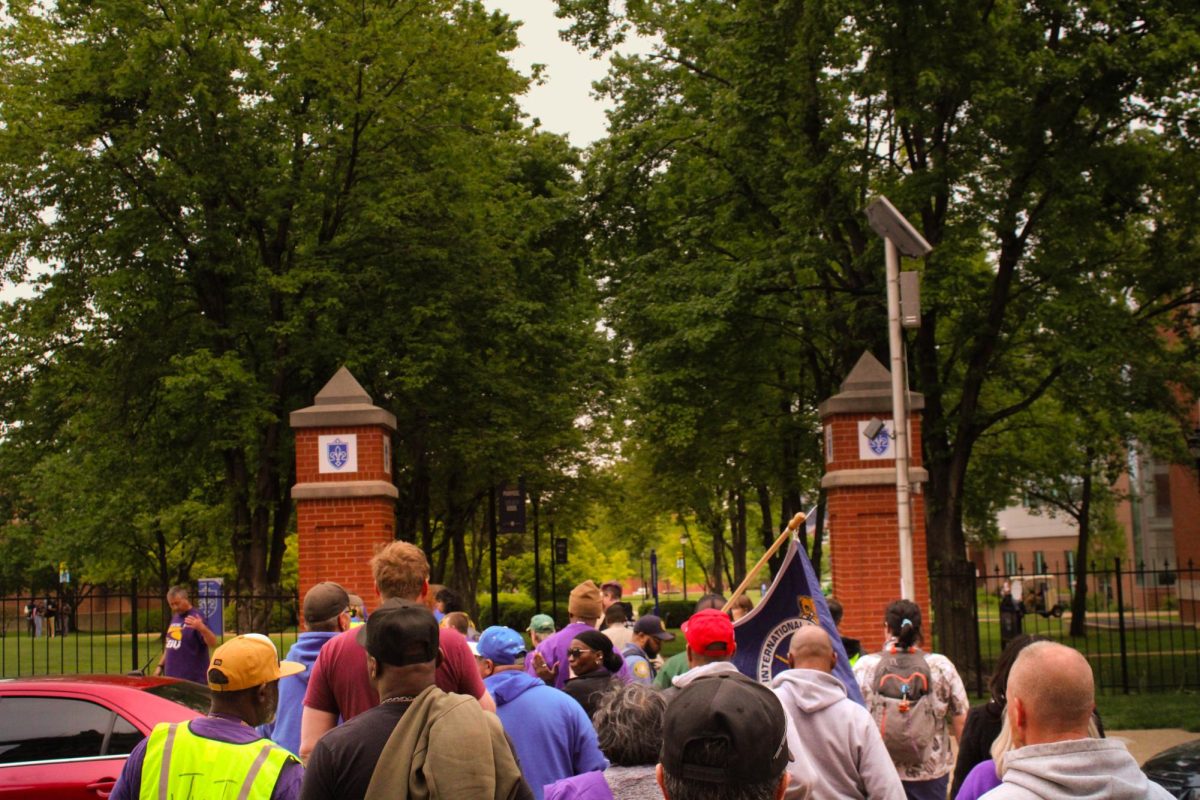At 5:45 a.m., Saturday, March 11, 37 Saint Louis University students and staff took seats on a coach bus outside of Tegler Hall?that would?take them 12 hours to New Orleans.? Eleven others?waited in an airplane at Lindbergh terminal, for their 6 a.m. departure to San Salvador.??With 10 other students, outside of Griesedeck Hall, I tossed my bags into the back of a 15-passenger blue van that would?take us to Mexico.
During the first?few days of?spring break, 131 people traveled across the country?and the world to volunteer?in?the projects?developed through?SLU’s Christian Action Program.?For more than 30 years, students have organized and participated in SLUCAP service trips over spring break.?
This year, one group traveled to the Bronx, N.Y., to work with Highbridge Community Life Center, a?community outreach and education program.??Some students traveled to San Benito, Texas, to work with immigrants.? Others drove?through the Appalachian Mountains?to?serve communities of rural poor.
Katie Kaminski, a senior in the John Cook School of Business, participated in a trip to Andre House in Phoenix, Ariz., where volunteers prepared and served dinner at a transitional house for homeless men looking to get off the street.
“Spring break trips such as these provide all participants the opportunity to have a reality check, to not only reflect on how they spend time and energy on a regular basis in the?’SLU bubble,’ but to also recognize the call for all of us to take an active approach to improving the current?state of today’s society,”?Kaminski said, about her group’s work.
“SLUCAP trips are a wonderful resource for students who wish to step outside of their comfort zone and think outside the box about social justice issues that are a concern today,” said Kelly McCann, who participated in the trip to La Posada in San Benito, Texas.?
Two groups of students traveled to New Orleans to work with families?whose homes?were ravaged by Hurricane Katrina. Abby Rardin, a senior, explained her?group’s work in?New Orleans:
“The first house had a water line only about three feet up the wall, so we made a line about four feet up, then knocked out all the drywall and everything else below that line. ?
The second house had not been touched since Katrina.?The water had risen all the way to the ceiling, lifting and shifting all the furniture inside. ?The water line was over our heads. ?We had to remove all of Mrs. Hundt’s (the homeowner) belongings: her furniture, clothes, pictures, moldy food, even her husband’s WWI rifle. ?Mrs. Hundt and her husband had built that house over 50 years ago, and she’s lived in it ever since. ?It was really hard to put basically her life out on the curb in a big pile as she looked on, often crying. ?We then removed all the drywall, insulation, the ceiling, the floor, pretty much everything. When we finished, all that was left was the outer walls (like siding), the studs and the roof. We then bleached all the studs to kill the mold. The plan is then for other people to come in after us and rebuild the whole inside.”
While many volunteers?offered specific and tangible?work to a particular community, others spent their days learning and interacting with another culture.
Students in El Salvador, for instance,?took trips to the site of Oscar Romero’s grave and also the site of his assassination.? They learned by living with different families and experiencing everyday life firsthand. In the city of Ellacuria, students learned about a grade school system and water purification project that the community has developed, and they spent time listening to stories about the Salvadorean civil war.
In Cuatrocienegas, Mexico,?I lived with members of the community of?Parochia San Jose.? During the week, we offered English lessons to youth in the neighboring city of Ocampo.?One day, we hiked through mountains outside of the city with a retired miner, who showed us where people work in?caves to gather guano to sell for fertilizer. On other days, we visited rural communities in the desert, where people make candelilla wax.
Many volunteers who participated in this year’s SLUCAP trips said that they signed up because they wanted to help out.? These volunteers said that they enjoyed the work.
“I particularly enjoyed working with the adults,” said Katrina Impelido, a student leader in The Bronx, N.Y.
“I helped tutor in a basic education class for adults who were studying to get their GED.? The difficult thing was that, for 12-18 students, there was only one teacher.? The students did not really receive any formal instruction, but would just be given packets of reading or mathematics and then asked to figure out the solutions.? Typically, the students would collaborate with each other to figure out what was going on and then ask the teacher questions when they got the?chance, but we were able to work with them individually or in small groups.?
“They welcomed our help and were very appreciative of us for taking our spring break to spend time helping them learn.? It was nice to be there for a week, because we also got to see their progress.? It was very fulfilling to work with the adults, because they really needed the one-on-one attention, and I felt like I was making a difference.”?
When asked about the service?they provided at their sites, many volunteers responded that they had learned something from their experience.
“Everything was really new for me,” said Elizabeth Terhaar, a junior who traveled to El Salvador.
“It was a very overwhelming trip because, in a way, it is like our mission wasn’t actually then and there.? Our mission is what we do now.”






